‘No,’ Llupa agreed, reluctantly.
‘We will be safe away from here,’ Dritan said.
‘I hope so.’
Dritan looked out through the windscreen as they drove along a wharf past warehouses. The van pulled up.
Edi Konstandin’s driver said, curtly, ‘Here.’ He climbed out and pulled open the rear doors for Nano and Llupa.
They stood with their bags in the failing light and a strong breeze that smelled of salt and rope and seaweed. Below them a cluster of different-sized fishing boats was moored. A vessel with its navigation lights on cruised past them, on the inky water, out towards the open sea and a distant, flashing green light. On the far side of the harbour, Dritan saw an orange-hulled boat with a white superstructure alongside the quay. Two large containers, marked EWALS CARGO CARE, sat above it.
‘I really, really do not want to go,’ Llupa said.
‘Fine, stay. I come to visit you in prison in ten years’ time. Bring you some cake. Is that what you want?’
The medical student said nothing.
‘Gentian, I think that you, like me, never came here to this country with the intention of doing bad things. We got influenced, right? Bad influence, Mr Dervishi?’
‘Maybe.’
‘He was able to protect us. Now he is gone, we no longer have that protection. It doesn’t mean we cannot return one day. But for now, we should be grateful to Mr Konstandin, I think.’
‘Maybe,’ he said again.
A surly-looking bearded man in a beanie, dressed in baggy oilskins and rubber boots, suddenly appeared from below the edge of the quay and hauled himself up. ‘Nano and Llupa?’ he asked in a coarse voice.
‘Yes,’ they both said.
‘Come with me. I’m Nick, your skipper. I’m taking you out to Mr Konstandin’s yacht that’s waiting for you. Be careful, the ladder is steep.’
Nano and Llupa tugged on their heavy backpacks, then followed the man down a vertical ladder fixed to the weed-covered harbour wall and stepped onto a floating pontoon that formed part of a network.
Taking a moment to adjust to the motion, they followed him past moored yachts of varying sizes, rigging clacking in the wind, to the far end of one pontoon, where a fishing launch was berthed, stern-in. It had a wide deck at the rear and a tall superstructure, with twin satellite dishes mounted high up on the cross-beam of a radio mast. Its name was Sweet Suzie.
Their skipper ran, deftly, across the narrow gangway, waited at the rear of the boat and took each of their rucksacks, placing them down on the deck. Then he held out a hand to help both of them on board, all the time looking around, edgily.
Dritan jumped down onto the deck, breathing in a strong stench of rotting fish, varnish and diesel.
‘If you need the heads, they’re down below. But you’re less likely to puke if you stay up here in the open. It’s going to be choppy out there. I suggest you sit out on the deck, where you are, and focus on the horizon.’ He clambered up some steps to the bridge, perched on the one chair and started the engine, which began ticking over with a loud, metallic knocking sound. He clambered back down, again looking up and around warily, then ran back along the gangway onto the pontoon. He knelt and unhooked one hawser from a bollard, tossing it onto the deck, then another. As the boat began to drift, he leaped back aboard and pulled up the gangway, then clambered up onto the bridge again.
The vessel began picking up speed, Dritan felt the breeze much stronger now. He stared at the white, thrashing wake. At the sky, seemingly teeming with seagulls. At the silhouettes of cliffs sliding by and the slanted wooden pilings of the harbour mole. And at the lights of Newhaven town beyond. As they neared the harbour mouth and the open sea, the boat began to pitch and roll increasingly. He worried he might feel sick. He had been sick the last time he went on a boat, on a fishing trip with Valbone and a friend of his, out of Brighton Marina.
Valbone.
He felt guilt.
They passed a huge auto-graveyard on the quay. A hill of metal, crushed almost beyond recognition, with a green grabber crane at the edge. Where the cliffs ended he saw the long, stone, west mole. Several blocks of flats, with many lights on. Then, on either side of the harbour mouth, a red and a green light.
He listened to the pitch of the engines as they picked up speed out of the harbour speed restrictions. Felt the motion of the boat as they ploughed on into increasing darkness. The only illumination here on the deck, faint and shadowy, was thrown down from the boat’s masthead light. Soon, all he could see behind were twinkling white lights and the flashing of a lighthouse and a red aircraft warning beacon high on the top of the cliffs. All of them were fading steadily. England was fading steadily. Somewhere over to his left were the Seven Sisters and Beachy Head. That must be the lighthouse he could see.
He was hungry, trying to remember when he had last eaten anything. Wondering how long before he could get something. Perhaps there were chocolate bars or biscuits or something on board.
He shouted at the skipper on the bridge. ‘Nick, do you have anything to eat?’
‘Yeah, sure, I’ll give you a menu.’
‘Menu?’
‘What do you want? Caviar? Steak and chips? Lobster Thermidor?’ the skipper shouted back. ‘We have a signal booster for mobile phones on board. You should have a good strong signal — why don’t you phone ashore for a takeaway? A curry? Thai? Kebab?’
Dritan took a moment to realize the man was joking. ‘Any biscuits?’
‘I’m sure when we RV with Mr Konstandin’s yacht, you’ll have a nice dinner waiting.’
‘How long will that be?’
‘Twenty minutes.’
‘OK, thank you!’ he shouted back against the rising wind.
Gentian Llupa, who had not uttered a word in some while, suddenly stood up, stumbled to the side of the boat and puked over it.
‘You OK?’ Dritan rose to his feet, but the boat rolled suddenly, sending him hurtling back down onto his hard seat and bashing his elbow painfully.
Llupa puked again.
The smell was making Dritan feel queasy, too. He shivered, wishing he had put warmer clothes on. He had a lightweight anorak in his rucksack, but it had slid some distance away from him, towards the steps down into the cabin. Looking for something to grip, he stood up, carefully holding the side of the boat, planting his feet and waiting, steadying himself. He was very definitely feeling a little giddy and sick himself now. And really shivering.
He reached his rucksack. Holding on to the top of a locker with his left hand, he knelt and unzipped the centre section of the bag with the other, looking for a pullover. Just as he did so, a familiar voice behind him startled him, making his skin crawl. It came from inside the unlit cabin.
‘How’s your day so far?’
Sunday 13 August
20.00–21.00
Dritan, crouched on the heaving deck, was gripped with fear. He must be dreaming. It could not be him.
Could not. He was dead, wasn’t he?
As he turned, he found himself staring straight into the muzzle of a shiny automatic. Mr Dervishi, in yellow oilskins and a heavy sweater, stood securely wedged between the two sides of the cabin entrance, holding the gun in his good hand.
‘Much nicer for me to see you, Dritan, than for you to see me, I imagine, eh — and a little surprise?’
Dritan’s mouth had dried up.
Dervishi kept the gun trained on him. Out of the corner of his eye he could see that for the moment, at least, Gentian Llupa was out of it, slumped over the deck rail, still retching. ‘Clever trick of yours, to circle back on your Ducati and put the phone behind that wheelie bin. Next time you try a stunt like that, permit me to offer you some advice. Stop further away, OK? Your Ducati has a very distinctive rattle when it is idling — because of its dry clutch, I believe.’
Читать дальше
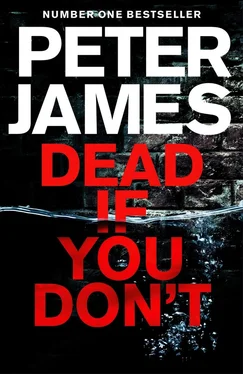
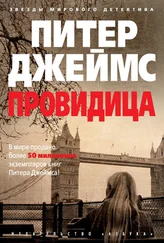
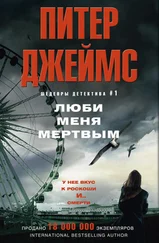

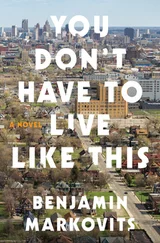
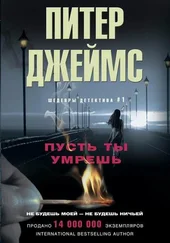

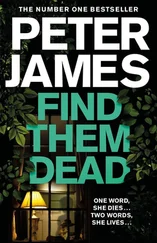


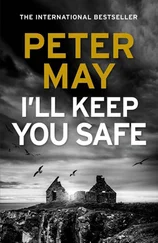
![Питер Джеймс - Wish You Were Dead [story]](/books/430350/piter-dzhejms-wish-you-were-dead-story-thumb.webp)
